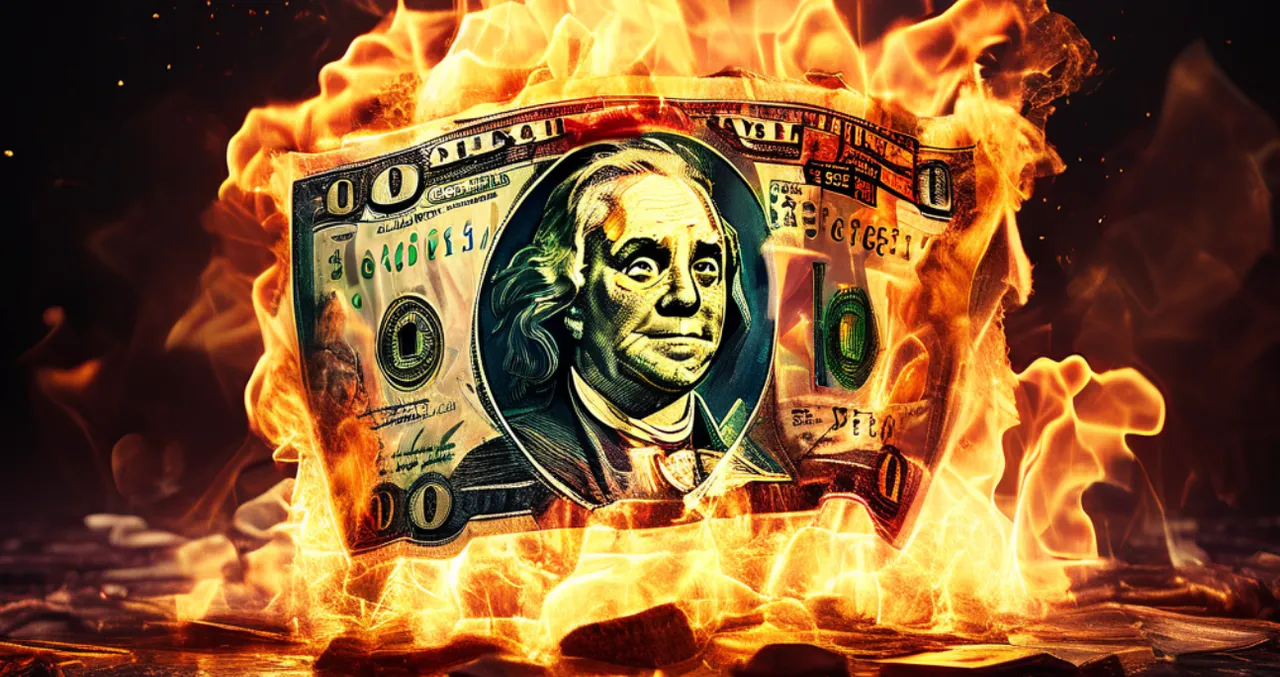Before the Great Financial Crisis, the monetary system was not a big interest of mine. I was in the comfortable matrix of traditional finance, which just worked and didn't warrant any questioning.
The GFC Of 2008
Then one fateful October day in 2008, I attended a small business networking group, where local entrepreneurs had gathered to discuss the week's happenings.
Clearly distraught by what had happened in the prior days, an independent financial planner stood up, and began to tell us about the failing banks and the crashing stock market.

I had no idea what was happening, or why these major banks were failing. But it's safe to say that if it weren't for that day, I never would have looked any further into our financial system.
Eye-Opening Research
On my days off, I would sit in front of YouTube late into the night, trying to unravel the intricacies of collateralized debt obligations, interest rates, and quantitative easing.
The Occupy Wall Street movement began, and people close to me began to wonder what all the fuss was about. I thought to myself, can't you see what they have done!?
The corrupted bankers, who deliberately made bad bets against their own customers, were to be bailed out by the government. That meant future taxpayers would be held liable for the negligence of wealthy financiers!
This was completely unjust. How could a nation rack up ever more debt, and simply pass it off to future generations without their consent?
I began to wonder, how could we save ourselves from such a corrupt and unsustainable system?
From Gold To Crypto
Some YouTube economists were recommending gold from 2011 to 2013, in order to escape the hyperinflation that would result from all the money printing. During all this research, I kept hearing the term "Bitcoin" being tossed around, but I didn't take it seriously at the time.
After a few years of research, and 200 ounces of silver later, I finally decided to spend a few days researching Bitcoin, and I was blown away by how the creator was able to combine the concepts of cryptography, distributed systems, and game theory to create an entirely new form of money.

Unlike the intricacies of the opaque banking system, Bitcoin made more sense. There was no guessing about the total supply, the "shadow banking" system, or trusting government numbers. With Bitcoin, everything was completely transparent, up to the source code itself.
Contrary to traditional fiat currencies like the dollar, the euro, or the yen, cryptocurrency is not debt-based. Rather, it's a scarce digital asset, and it belongs solely to the owner who controls the private key.
I began to wonder, if the real-world economy were based on a scarce digital asset like Bitcoin it wouldn't need to grow at 3% every year into infinity, and be much more sustainable for a planet with limited resources.
The CBDC Obstable
Crypto enthusiasts weren't the only ones concerned about the unsustainable trajectory of the financial system. The powers that be could also see the problem, and came up with their own solution - a centrally controlled economy based on CBDCs.
The problem with the proposed CBDC system is that we would be under the control of total psychos - the same ones that mandated experimental mRNA gene therapy on the entire population, resulting in millions of injuries.
At least with Bitcoin and other cryptocurrencies, we could have a sustainable economy that is also based on free market principles, and the people could freely govern themselves more efficiently.
A Post-Fiat, Crypto World
Thanks in part to the unlimited quantitative easing and low interest rates imposed since the Great Financial Crisis, cryptocurrencies have skyrocketed in value relative to fiat currencies. But how much of that value is based on pure speculation, rather than fundamentals?

The problem is that people see their crypto portfolios skyrocket in fiat terms and become emotionally attached to coins they have invested in. They look at their crypto in terms of how much it's worth in fiat, instead of thinking what their crypto would look like in a post-fiat world.
Crypto's Promise
The blockchain technology behind crypto is undeniably revolutionary. It's the best form of money we have ever had. Why? Because crypto is based on mathematics and deterministic systems - removing the need to trust fallable humans in order to transact.
That said, these days cryptocurrencies are still essentially a form of gambling. Most people are simply betting on crypto, using it as a means to get rich in fiat currency - the same currency that is destined to fail due to our unsustainable debts.
Imagining a post-fiat world, we can assume that fundamentally sound cryptocurrencies, particularly those that are censorship-resistant and enable real-world economic activity, will be the money we use in our future transactions.
For the time being, the vast majority of the population will continue to use relatively stable fiat currencies. People will only find the motivation to use fundamentally sound cryptos when the old system fails, and fiat currencies collapse.

The Cryto-Powered Future
As sovereign debt continues to expand exponentially, and the elite implement their multi-pronged plans for a "great reset", I feel we are increasingly close to the point of systemic failure, and the ushering in of a new financial system.
The question is, will the people be corralled into a CBDC-powered centrally controlled economy, or will they revolt against it and opt for a free market, based on decentralized cryptocurrencies?
We have already witnessed the trend of small countries, and states within America itself choosing to take the freedom route, so I remain optimistic that decentralized blockchains will be the foundation of our future economies.
If you learned something new from this article, be sure to check out my other posts on crypto and finance here on the HIVE blockchain. You can also follow me on InLeo for more frequent updates.
Until next time...
Resources
Image Generation by Venice AI [1]